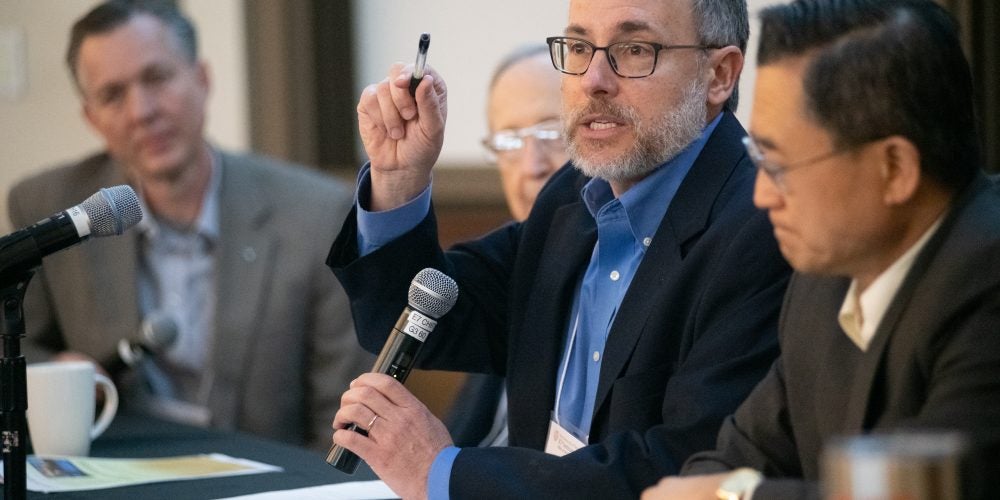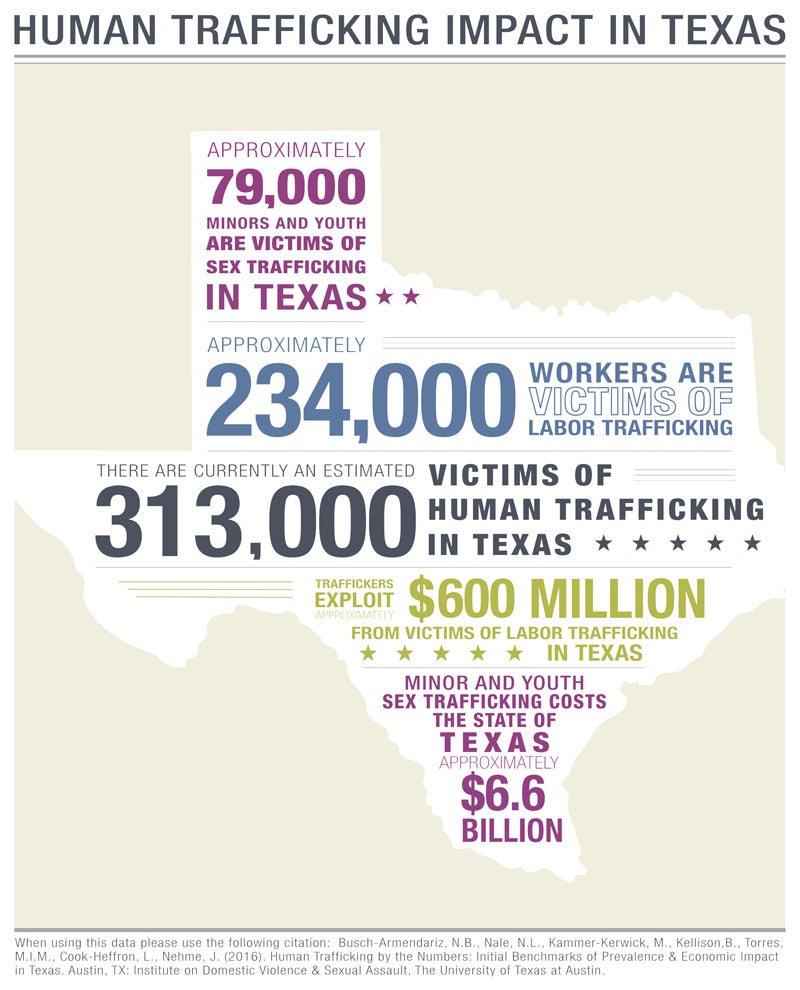

The Bureau of Business Research (BBR) at the IC² Institute is the lead institution on a newly awarded National Science Foundation collaborative research grant with Georgia State University. The grant funds the study of labor trafficking and exploitation. The study is seen as timely given the impact of the pandemic on the US workforce; day laborers and low-skilled workers in the construction supply chain are particularly vulnerable to labor exploitation during times such as these. Dr. Matt Kammer-Kerwick and colleagues at Georgia State University will develop a model-based decision framework and specific interventions to help policy makers and workers prevent and respond to labor exploitation and trafficking.

This study will contribute to the national security, prosperity, and welfare by improving understanding of the states of laborer exploitation and trafficking that often occur in the chaotic rebuild and recovery environment following natural disasters such as hurricanes and pandemics. Construction supply chains are extremely vulnerable to labor exploitation and trafficking, especially among workers with fewer skills and day laborers. The model-based decision framework will help policy makers and individuals prevent and respond to situations of labor exploitation and trafficking from a societal perspective by designing more efficacious interventions. The project will provide a path forward toward the design and deployment of a large-scale trial of interventional targets and programs. The exacerbating influences that ongoing natural disasters like COVID-19 have on labor supply chains allow the decision framework to be developed with built-in resilience.
Kammer-Kerwick noted, “Our early research established initial estimates of the scope and economic of trafficking and exploitation in Texas. This 5-year study will allow us to develop empirically based decision-making frameworks to design and evaluate interventions to disrupt illicit behavior in labor supply networks. Our partnership with Professor Swartout at Georgia State University allows the research to be informed by labor experiences seen in Texas and Georgia, further increasing the robustness of the methods developed.”
The project will involve early-career scholars, graduate students, women, minorities, and multiple institutions, and will more broadly facilitate future involvement of the behavioral science and decision science communities in the disruption of illicit supply networks.
This study adds to the BBR’s portfolio of research related to human trafficking, exploitation, or assault, including studies of child exploitation, human trafficking in the wake of a hurricane, campus sexual assault, and work with UT Austin’s Institute on Domestic Violence and Sexual Assault.
“The study will add to our understanding of the continuum of exploitation, from wage theft to trafficking, and hopefully point to links in the supply chain that can be strengthened to prevent furthering suffering and enhance industry accountability.”
Bruce Kellison, Director of the BBR
The IC² Institute was established at The University of Texas at Austin in 1977, as a think-and-do tank to explore the broad economic, technological, and human factors that drive economic development in regions. Our mission is to better understand and catalyze communities outside major urban corridors to become more collaborative and resilient through a human-centered approach. The Bureau of Business Research (BBR) aims to provide Texas business-people and policymakers with applied economic research and data to strengthen the state’s business environment. Since its founding in 1926, the BBR has developed a reputation for nonpartisan analysis of economic trends through publications, independent reports, and sponsored research.


